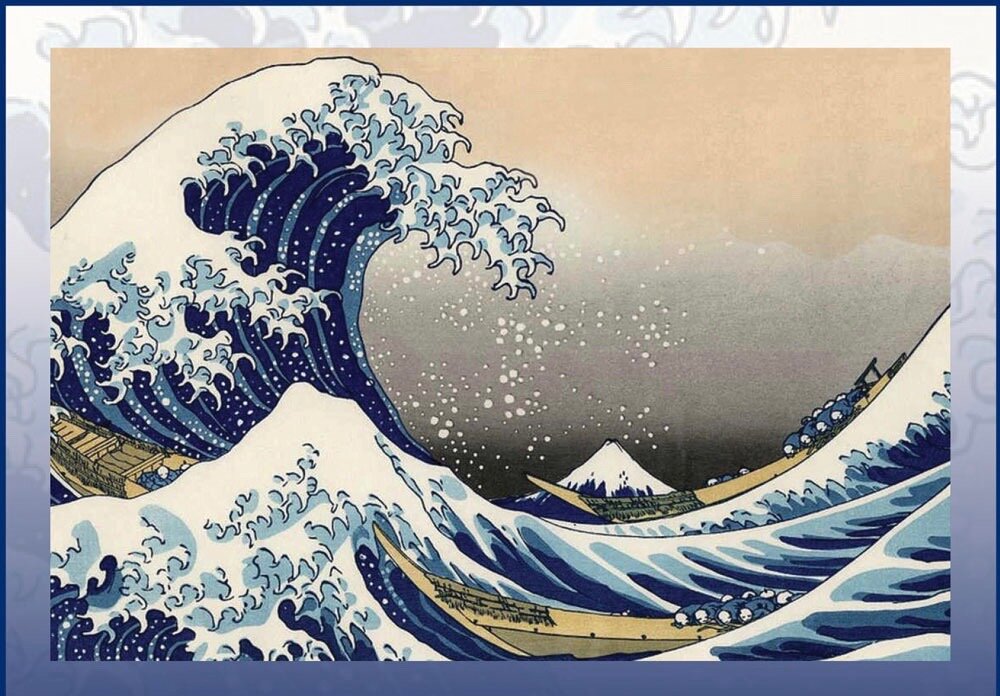The news of the sad and disturbing events over the weekend with the attack on Israel landed with a sickening resonance in my life in the midst of a reading on the Buddhist precepts, first among them to refrain from harming living beings.
Having a moral foundation is the first task of Buddhist meditators. The reason for this is simple. If we are behaving in immoral ways, we will suffer because of our actions either directly or indirectly. And thus, we will not be able to meditate or concentrate too well. In spite of overwhelming evidence to the contrary, human beings are not happy when they behave in immoral ways. Their minds - our minds - are not clear when we have harmed another living being.
In Buddhism there are three supports for the life of freedom from suffering. Sila, samadhi, and pañña are the Pali words - ethical behavior or morality, concentration or serenity, and insight or wisdom in English. The first among these is sila - morality. The initial and oft repeated act of monks and nuns then and now, and also retreatants throughout the world is the taking of the precepts. The first precept is to refrain from harming living beings. The next four include not stealing, not lying, not spreading malicious gossip, and not imbibing in consciousness-distorting substances.
We start with just the first precept - to refrain from harming living beings. The chapter I was reading listed some of the questions that arise with this precept. If we eat meat, should we become vegetarians? How do we relate to all the small creatures that seek to invade our homes? Paris is freaking out about bedbugs. We might feel the same. If our pet is sick, do we put them down?
And then the question came that rocked me: “What if your country is invaded by hostile forces? Do you support your country’s military in defending itself?” * Suddenly I was seeing the attack by Hamas on Israel through a long lens. This lens only goes back as far as my awareness of the issues though. I remembered why the Hamas was formed - out of the rubble of a town called Hamas flattened out of existence by Israelis in revenge for deadly acts emanating from that town. I remembered the ’67 Six Day war and the taking of the Gaza strip and the West Bank by the Israelis and the subsequent population of some of that territory by settlements at the behest of the Israeli government, remembered reading how the Palestinians were crammed into a smaller space with no room to grow and no resources, a perfect fermenting ground for anger, resentment, desperation right next to the newly formed settlements. Maybe my historical and geographical rememberings are off here and there and there is lots more before I became aware and in between. But the pattern of pain, desperation, hardship, and grief leading to violence has been played out on both sides of the conflict. Over and over again….
And yet the instinct is alive to defend one’s country, one’s friends and family, one’s neighbors. Of course it is. And the momentum builds up and countless beings are swept up in another round of horror.
Sharon Salzberg tells a story of a king surveying the wreckage of the battlefield with the Buddha. Bodies of men and animals, blood, battle equipment everywhere. And a lone monk softly picking his way through the battle field stopping here and there, a peaceful expression on his face. The King asked the Buddha about this monk. The Buddha replied that as a King he had to make different decisions from the monk but there was much he could do to ward off the possibility of such carnage in the future - namely sharing the resources of the kingdom more equitably, and listening to grievances of his subjects, so that people were treated fairly and knew they were sharing in what was available. The King listened thoughtfully and went off and did exactly that. Peace and prosperity reigned during his lifetime.
Now with burgeoning populations and resources more and more scarce, fear, grief, trauma, blaming falsely or in truth, the incapacity of the planet to absorb our excesses more apparent, our conditions may appear more extreme. Passions run high - fueled by increasing desperation in more and more people.
And yet the Buddha’s directive to refrain from harming living beings is piercingly obvious in its simplicity. How else are we to co-exist in this world? How else are we to find solutions to insoluble problems? To share the dwindling resources? To live in peace?
But equally pressing, how are we to live with the pain inflicted by others, the pain inflicted by ourselves? How are we to hold our own grief, sorrow, anger, frustration, desperation?
We can only start with ourselves - with mindfulness, with compassion, with loving kindness, with forgiveness, cultivating and sharing this heart abundance. The sublime qualities of loving kindness, compassion, joy and equanimity are, as described in the suttas, "abundant, exalted, immeasurable.”
And we can begin to widen our world so that it becomes our shared world, our shared resources. Our families and friends and neighbors connect to all families, friends and neighbors. Our compassion extends to all beings caught in this terrible conflict. No one escapes suffering. All need our compassion.
“It is compassion that removes the heavy bar, opens the door to freedom, makes the narrow heart as wide as the world.
Compassion takes away from the heart the inert weight, the paralyzing heaviness; it gives wings to those who cling to the lowlands of self.”~~Nyanaponika Thera.
First we begin. And then we continue.

